Wang Di, a professor in the Department of History of the Faculty of Arts and Humanities at the University of Macau (UM), credits his development as a scholar to one primary factor: reading. His office is a testament to this activity, with bookshelves lining three walls, filled with books that he has both read and written. In the preface of his new book Small Voice of History, he says: ‘Reading has increased my knowledge, stimulated my thinking, shaped my character, and determined my thoughts.’ This concise statement powerfully captures the influence of reading on his intellectual and personal growth.
Reading is about learning how others tell their stories
Prof Wang has a voracious appetite for reading, spanning professional books, leisure books, and e-books. He has also published numerous articles and books. Two of his latest works are Small Voice of History and Amazing Everyday Successes: Chinese Society and People under Microhistory (hereafter referred to as Amazing Everyday Successes), and to the latter he has devoted years of meticulous research. Small Voice of History has been selected by Yazhou Zhoukan (which means ‘Asia Weekly’) as one of the top ten books in 2022 in the non-fiction category.
He describes Small Voice of History as a book about his own reading history, in which he has recorded his academic experiences and reflections on historical research. As someone who values independent thinking and critical analysis of historical narratives, he believes that reading is the most effective way to cultivate critical thinking skills.
Teaching, research, and writing already consume a significant portion of Prof Wang’s time, so how does he make time for reading in his busy life? One of his approaches is to listen to audio books. One day, while he was working in the United States, he experienced a sudden retinal detachment in his right eye, a condition caused by prolonged hours of reading. With his right eye almost blind, he turned to the accessibility function on his cell phone to listen to books during his spare time in order to avoid straining his other eye. Prof Wang says that the best way to do scholarly research is to read as much as possible. It can be said that without reading, he would not have become the accomplished scholar he is today. ‘Reading is not just about acquiring knowledge, but also about learning how others tell stories and observing how stories are effectively conveyed,’ he says.
Learning stories of different times from listening to books
The idea for Amazing Everyday Successes was born from Prof Wang’s love for listening to books. To make Chinese history accessible to a wider audience, he transformed this vast and perplexing knowledge into 156 questions, providing an easy-to-understand introduction to the social history of the Chinese people. Derived from an audio programme, Amazing Everyday Successes delves into the daily life and culture of the Chinese people and has been published in two volumes containing over 600,000 words.
The book has garnered rave reviews and numerous accolades, including selection as one of the top ten books in 2022 in the non-fiction category and in the Chinese history category by Ching Po Daily and an economist book club in China, respectively. It also appears on the recommended reading list for 2022 released by China Publishers, CCTV, publishing units in the fields of humanities and social sciences in China, and CITIC Press Group. The book is among China Reading Weekly’s top 20 recommended history books in 2022, one of the top 20 masterpieces in humanities and social sciences selected by China Literature, and among books recommended by Xinhua News Agency for readers at the beginning of 2023.
In order to write history for the people, historians must listen to the voices of commoners. Raised in Chengdu, Sichuan province, Prof Wang is always attuned to the everyday concerns of people, from the lively teahouses on the streets to the lives of countless individuals in the vast rural areas. In Amazing Everyday Successes, he departs from the traditional focus on emperors and heroes, instead delving into the vivid and authentic lives of ordinary people.
People often underestimate the significance of ordinary individuals, but Prof Wang holds a different view. He even titled his book ‘Amazing Everyday Successes’, which eloquently conveys the historical importance of his study of the daily lives of ordinary people. ‘Ordinary people have inherent value in their life, whether they work as an employee, a labour worker, a farmer, or a stay-at-home mother. Each of these ordinary individuals works hard to improve their daily lives, making meaningful contributions to society and embodying the true value of life,’ says Prof Wang. ‘Their stories are worthy of inclusion in the annals of history, and through their small voices, we can even gain insight into the sweep of historical events.’ His works shine a light on the often-overlooked stories of these everyday individuals, which may provide vivid and emotionally resonant interpretations of human history.
One of the most difficult aspects of writing is form
Since the publication last year of Amazing Everyday Successes, Prof Wang has been in high demand for interviews and lectures. When discussing the writing process of the book, he often says that one of the challenges he faced was the form of writing, which was influenced by the change in readership. While his previous books were primarily targeted towards academics or fellow historians, Amazing Everyday Successes is intended for a wider audience, including the general public. ‘I had to consider the ability of the general reader to comprehend the material, so I had to carefully distill complex historical information and present it in concise and accessible language after thoroughly understanding and digesting it,’ he says.
In 2019, Prof Wang received the inaugural Lv Liang Literature Award in the non-fiction category, a recognition that underscores his skill in storytelling. As a historian, he is frequently asked about the challenge of writing history as non-fiction style. While the conventional belief among historians is that their writing is based solely on historical data and therefore reflects objective historical truth, Prof Wang disagrees with this notion. He considers both historical and literary writing as forms of re-creation: ‘While we study history to seek the truth, it is impossible to fully restore the complete history, no matter how detailed and abundant the information may be. The history I write is inevitably influenced by my subjective perception, and it carries my personal understanding of history.’
However, he is meticulous when it comes to researching historical facts and thoroughly verifying every detail for his historical monographs. He ensures that his writing is grounded in facts, and expressing history in a form that is closer to literature is a deliberate choice to make it more appealing to general readers. ‘By adopting a form that is interesting to read, I can achieve my goal of popularising rigorous historical study among the general public,’ he says.
Making history more accessible to the everyday person
Prof Wang’s distinct and insightful perspective on history has garnered attention from both academics and society at large. He possesses a unique ability to weave compelling narratives about ordinary individuals using literary techniques, making history accessible to the everyday person and revealing the traces of social change through the voices of the marginalised and the silent majority. In the 1990s, he achieved a remarkable feat as he became the youngest associate professor of history in China at Sichuan University. He furthered his academic pursuits as a visiting scholar at the Center for Chinese Studies at the University of Michigan and later completed his doctorate at Johns Hopkins University.
Prof Wang’s commitment to academic growth has been a driving force behind his success as a historian. During his time in the United States, he underwent a transformative experience that propelled him into the realm of microhistory, a field of study that he has passionately pursued for over two decades.
The study that has taken the most effort at UM
Prof Wang joined UM in 2015 after teaching for 17 years at Texas A&M University. During his eight years at UM, he published several monographs with an impact on society. Recently, he has been diligently working on one of his most ambitious historical research projects at UM, with the results slated for publication by the People’s Literature Publishing House later this year. Titled ‘China through Others’ Eyes’, this two-volume book delves into the history of China from 1912 to 1928 and adopts an innovative approach by reflecting on this piece of history from an American perspective. ‘I believe that examining this history from the perspective of others can provide valuable insights and a clearer understanding of China’s past,’ he says.
In preparation for this book, Prof Wang has spent enormous time and energy on compiling and collecting a vast amount of English-language materials from the United States. They include text records from American journalists, diplomats, and writers. ‘I can say that this is the study that has taken me the most efforts at UM,’ he says.
In addition to China through Others’ Eyes, Prof Wang is currently engaged in another research project with a focus on Macao’s secret societies. Since joining UM, he has been focusing on topics around Chinese social and cultural history, Chinese urban history, and Chinese secret societies. Despite his previous experience in writing Violence and Order on the Chengdu Plain: The Story of a Secret Brotherhood in Rural China, 1939-1949, Prof Wang faced challenges in collecting historical information on Macao’s secret societies. ‘I attempted to interview key figures from these societies, but was not successful. However, I have been able to conduct research through extensive sources such as existing information, newspapers, archives, and interviews. Through this upcoming book, I will share my perspective on the Macao society, and as always, I will highlight the stories of ordinary individuals,’ says Prof Wang.
Reading is about cultivating one’s perspective and sentiment
Prof Wang is an outstanding and compassionate faculty member at UM, known for his knowledge, perspective, and sentiment. Apart from being a distinguished historian, he is also a skilled educator. He often stresses the significance of humanism and encouraging young minds to pursue knowledge and theories beyond books. He contends that reading plays a pivotal role in shaping an individual’s perspective and sentiment. As he states at the beginning of Small Voice of History: ‘Reading has increased my knowledge, stimulated my thinking, shaped my character, and determined my thoughts.’ His commitment to extending his research beyond the confines of academia and engaging with the wider community reflects his strong sense of social responsibility and humanistic qualities.
A teacher has the power to shape a student’s future direction. Prof Wang’s own path towards studying modern Chinese history was influenced by a teacher he had during his sophomore year of college. ‘A skilled educator has the power to impact a student’s life choices often without even realising it,’ says Prof Wang.
In terms of academic research, Prof Wang sets a great example for students at UM. In class, he consistently stresses the importance of having an open mind and a critical mindset when pursuing research. He also encourages students to find meaningful topics and not to make excuses that could halt their exploration. ‘Reading, researching, and writing all require years of time investment,’ he says.
He often has a regular presence among the young students on UM’s campus and he draws from his own experiences to inspire them to broaden their horizons during their free time, encouraging them to visit big cities to witness prosperity and development as well as rural villages to experience simplicity and poverty. In addition to reading, students should step out to experience the world in order to develop a broader perspective,’ he says.
A Biography of Prof Wang Di
Wang Di is a chair professor in the Department of History and the associate director of the Institute of Advanced Studies in Humanities and Social Sciences at the University of Macau. He holds a PhD in history from Johns Hopkins University in the United States. He has served as a professor in the Department of History at Texas A&M University, co-editor of the English academic quarterly Frontiers of History in China, and president of the Chinese Historians in the United States. He has received awards such as the Best Work Award from the Urban History Association in the United States, the inaugural Lv Liang Literature Award, and the Outstanding Academic Work Award from the Association for the Studies of Chinese Secret Societies. His main research interests include Chinese social history, urban history, new cultural history, daily life history, and microhistory.
Prof Wang’s famous works include Breaking up a Closed World — The Social Transformation of the Upper Yangzi Region, 1644-1911, Street Culture in Chengdu 1870-1930, The Teahouse: Small Business, Everyday Culture, and Public Politics in Chengdu, 1900-1950, The Teahouse under Socialism: The Decline and Renewal of Public Life in Chengdu, 1950-2000, Violence and Order on the Chengdu Plain — The Story of a Secret Brotherhood in Rural China, 1939-1949, From Quantitative and Narrative Approaches to Textual Analysis: Transformation of Empirical Methodologies of Social History, The Street Corner Teahouse, The Lost Ancient City: Everyday Life and Memories in Late-Qing and Early Republican Chengdu, Small Voice of History, and Amazing Everyday Successes — Chinese Society and People under Microhistory.
Text / Ella Cheong, UM Reporter Li Changzhou
Photo / Jack Ho, Ella Cheong, with some provided by the interviewee
English Translation / Anthony Sou
Source: My UM ISSUE 123
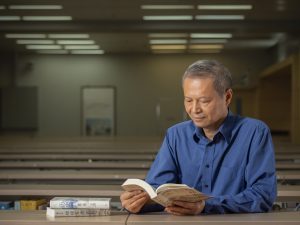
Prof Wang Di
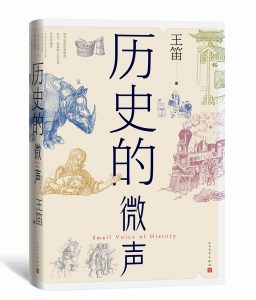
Small Voice of History
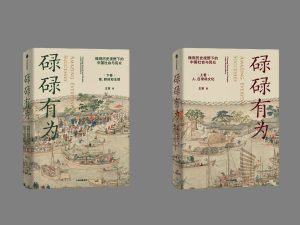
Amazing Everyday Successes: Chinese Society and People under Microhistory
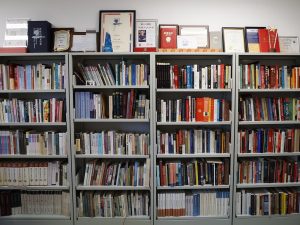
Prof Wang Di’s bookshelf displays the important awards he has received in recent years
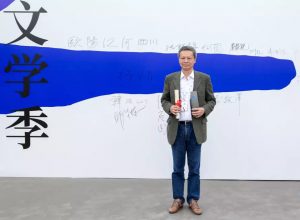
Prof Wang Di received the inaugural Lv Liang Literature Award in the non-fiction category
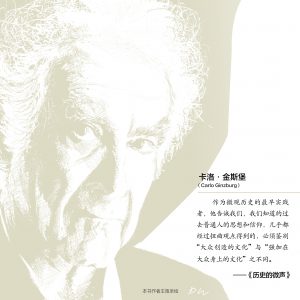
In addition to teaching, research, and reading, Prof Wang Di also enjoys painting. He personally drew the illustrations of historians in his book Small Voice of History
